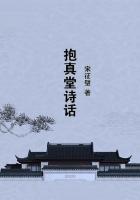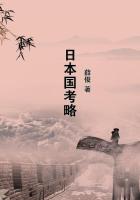"Difficult to say anything for certain at this stage, of course, and I'm not a genius surgeon like some of the blokes in Moresby. They'll be able to tell you a lot more. But the urethra has been damaged, so have many of the tiny little nerves in the perineum. I'm pretty sure he can be patched up as good as new, except maybe for the nerves. Nerves don't patch up too well, unfortunately." He cleared his throat. "What I'm trying to say is L%- "caret might never have much sensation in the genital region." Jims uropped his head, looked at the ground through a crystal wall of tears. "At least he's alive," he said.
He was granted leave to fly to Port Moresby with his brother, and to stay until Patsy was pronounced out of danger. The injuries were little short of miraculous. Bullets had scattered all around the lower abdomen without penetrating it. But the Ninth medic had been right; lower pelvic sensation was badly impaired. How much he might regain later on no one was prepared to say.
"It doesn't much matter," said Patsy from the stretcher on which he was to be flown to Sydney. "I was never too keen on marrying, anyway. Now, you look after yourself, Jims, do you hear? I hate leaving you."
"I'll look after myself, Patsy. Christ!" Jims grinned, holding hard onto his brother's hand. "Fancy having to spend this. rest of the war without my best mate. I'll write an. I tell you what it's like. Say hello to Mrs. Smith and Meggie and Mum and the brothers for me, eh? Half your luck, going home to Drogheda."
Fee an. Mrs. Smith flew down to Sydney to meet the Americas plane. which brought Patsy from Townsville; Fee remained only a few days, but Mrs. Smith stayed on in a Randwick hotel close to the Prince of Wales military hospital. Patsy remained there for three months. His part in the war was over. Many tears had Mrs. Smith shed; but there was much to be thankful for, too. In one way he would never be able to lead a full life, but he could do everything else: ride, walk, run. Mating didn't seem to be in the Cleary line, anyway. When he was discharged from hospital Meggie drove down from Gilly in the Rolls, and the two women tucked him up on the back seat amid blankets and magazines, praying for one more boon: that Jims would come home, too.
Not until the Emperor Hirohito's delegate signed Japan's official surrender did Gillanbone believe the war was finally over. The news came on Sunday, September 2, 1945, which was exactly six years after the start. Six agonizing years. So many places empty, never to be filled again: Dominic O'Rourke's son Rory, Horry Hopeton's son John, Eden Carmichael's son Cormac. Ross MacQueen's youngest son, Angus, would never walk again, Anthony King's son David would walk but never see where he was going, Paddy Cleary's son Patsy would never have children. And there were those whose wounds weren't visible, but whose scars went just as deep; who had gone off gaily, eager and laughing, but came home quietly, said little, and laughed only rarely. Who could have dreamed when it began that it would go on so long, or take such a toll? Gillanbone was not a particularly superstitious community, but even the most cynical resident shivered that Sunday, September 2nd. For on the same day that the war ended, so did the longest drought in the history of Australia. For nearly ten years no useful rain had fallen, but that day the clouds filled the sky thousands of feet deep, blackly, cracked themselves open and poured twelve inches of rain on the thirsty earth. An inch of rain may not mean the breaking of a drought, it might not be followed by anything more, but twelve inches of rain means grass. Meggie, Fee, Bob, Jack, Hughie and Patsy stood on the veranda watching it through the darkness, sniffing the unbearably sweet perfume of rain on parched and crumbling soil. Horses, sheep, cattle and pigs spraddled their legs against the shifting of the melting ground and let the water pour over their twitching bodies; most of them had been born since rain like this had last passed across their world. In the cemetery the rain washed the dust away, whitened everything, washed the dust off the outstretched wings of the bland Botticelli angel. The creek produced a tidal wave, its roaring flood mingling with the drumming of the soaking rain. Rain, rain! Rain. Like a benediction from some vast inscrutable hand, long withheld, finally given. The blessed, wonderful rain. For rain meant grass, and grass was life. A pale-green fuzz appeared, poked its little blades skyward, ramified, burgeoned, grew a darker green as it lengthened, then faded and waxed fat, became the silver-beige, knee-high grass of Drogheda. The Home Paddock looked like a field of wheat, rippling with every mischievous puff of wind, and the homestead gardens exploded into color, great buds unfurling, the ghost gums suddenly white and lime-green again after nine years of griming dust. For though Michael Carson's insane proliferation of water tanks still held enough to keep the homestead gardens alive, dust had long settled on every leaf and petal, dimmed and drabbed. And an old legend had been proven fact: Drogheda did indeed have sufficient water to survive ten years of drought, but only for the homestead.
Bob, Jack, Hughie and Patsy went back to the paddocks, began seeing how best to restock; Fee opened a brand-new bottle of black ink and savagely screwed the lid down on her bottle of red ink; Meggie saw an end coming to her life in the saddle, for it would not be long before Jims was home and men turned up looking for jobs. After nine years there were very few sheep or cattle left, only the prize breeders which were always penned and hand-fed in any time, the nucleus of champion stock, rams and bulls. Bob went east to the top of the Western slopes to buy ewes of good blood line from properties not so hard hit by the drought. Jims came home. Eight stockmen were added to the Drogheda payroll. Meggie hung up her saddle.
It was not long after this that Meggie got a letter from Luke, the second since she had left him.














